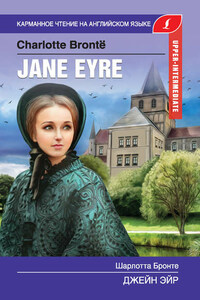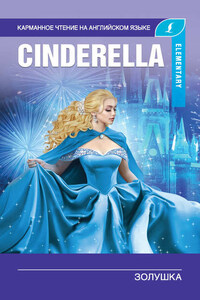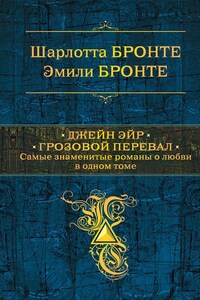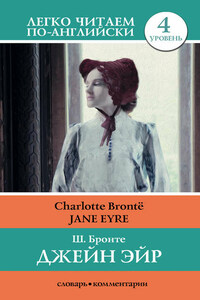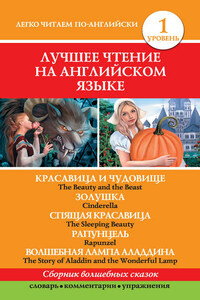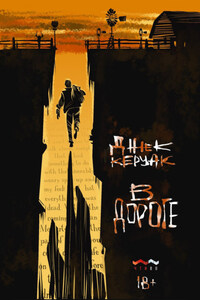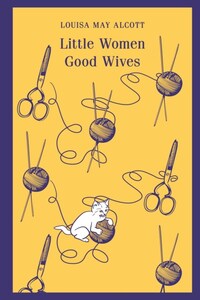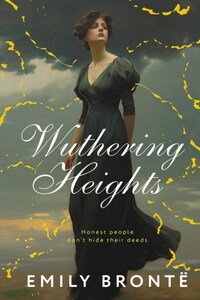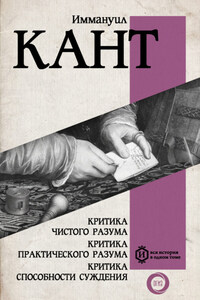It was impossible to take a walk that day. Since dinner the cold winter wind had brought with it clouds so sombre, and a rain so penetrating, that further out-door exercise was out of the question. Instead, we had to amuse ourselves indoors[1]. I was glad of it: I never liked long walks, especially on chilly afternoons. My cousins, Eliza, John and Georgiana Reed were sitting round their mama in the drawing-room by the fire-side, but I was not allowed to join the group.
“You, Jane, are excluded from our company until I hear from Bessie that you can behave like a proper, sweet little girl,” announced Mrs. Reed.
“What does Bessie say I have done?” I asked.
“Jane, I don’t like questioners; don’t answer me back[2]. Be seated somewhere; and until you can speak pleasantly, remain silent.”
I went into another room, with a bookcase in it. I took one of the books, Bewick’s History of British Birds, and climbed into the window seat. I drew the curtain, gathered up my feet, and sat cross-legged, like a Turk. Then I immersed myself into another world. I was now discovering the shores of Lapland, Siberia, Spitzbergen, Nova Zembla, Iceland, Greenland, with ‘the vast sweep of the Arctic Zone, and that reservoir of frost and snow. Of these death white realms I formed an idea of my own: shadowy, like all the half-comprehended notions that float dim through children’s brains, but strangely impressive.
The book contained pictures, and each picture told a story. These stories were as interesting as the tales Bessie sometimes narrated on winter evenings when she was in good humour and fed our attention with passages of love and adventure from old fairy tales and other ballads.
With Bewick on my knee, I was then happy: happy at least in my way. I feared nothing but interruption, and that came too soon. The breakfast-room door opened.
“Boh!” cried the voice of John Reed. Then he paused as he thought the room was empty. “Where is she? Lizzy! Georgy! Tell Mama! Jane’s run out into the rain!”
“She’s in the window seat,” Eliza said at once.
I came out immediately before John could drag me out.
“What do you want?” I asked.
John Reed was a fourteen-year-old schoolboy, four years older than I. He was large and stout for his age, and he bullied me continually. I hated and feared him, I could do nothing against his menaces. The servants did not like to offend their young master, and Mrs. Reed was blind and deaf on the subject.
All at once, without speaking, John struck suddenly and strongly
“That is for your rude answer to mama, for hiding behind curtains and for the look you had in your eyes, you rat,” he said.
“What were you doing behind that curtain?”
“I was reading.”
“Show me the book.”
I gave him the book.
“You have no right to take our books. You have no money, your father left you none, you should beg, and not live with us. Now, I’ll teach you a lesson. Go and stand by the door.”
I did so, then waited, flinching. He hurled the heavy book at me. It hit me and I fell, striking my head against the door and cutting it. The cut bled, the pain was sharp: suddenly my terror was gone, and I was full of anger.
“Wicked and cruel boy! You are like a murderer!”
“Did she say that to me? Did you hear her, Eliza and Georgiana? Won’t I tell mama? but first—“
He grasped my hair and my shoulder. I don’t very well know what I did with my hands, but he called me ‘Rat! Rat!’, Eliza, and Georgiana ran for Mrs. Reed.
We were parted, and Mrs. Reed was standing over me.
“Dear, dear,” said Abbott, shaking her head. “What a fury, to fly at master John!”
“Take her away to the red-room,” said Mrs. Reed, “and lock her in there.”
The red-room was the biggest bedroom in Gateshead Hall, with a red carpet, red damask drapery, red velvet curtains, and a dark mahogany bed in it. Nobody slept there. Nobody wanted to. It was here, nine years before, in that very bed that Mr. Reed had died. Ever since I had often heard the servants whispering that it was haunted.
I resisted all the way. Bessie and Abbott had to force me through the door. I only stopped struggling when they threatened to tie me to a chair.
“What shocking conduct, Miss Eyre, to strike a young gentleman! Your young master.”
“Master! How is he my master? Am I a servant?”
“No; you are less than a servant, for you do nothing for your keep,” said Miss Abbot.
“Miss Eyre, you should be grateful to Mrs. Reed for keeping you,” said Bessie, in a kinder voice. “If you don’t behave, she might send you away[3], and then where would you be?”
“You’d better say your prayers, Miss, and ask for forgiveness,” said Abbott.
They left and locked the door behind them.
Left alone, holding furiously onto the chair I had been pushed into, I turned the afternoon’s events over and over in my mind[4]. Why did everyone adore selfish, rude John, Georgiana and Eliza, and hate me, even though I tried to be good? Why could I never please? Was it because they were pretty, with their golden curls and silk dresses, and I was poor and plain? “Unjust!—unjust!” said a voice in my head.
